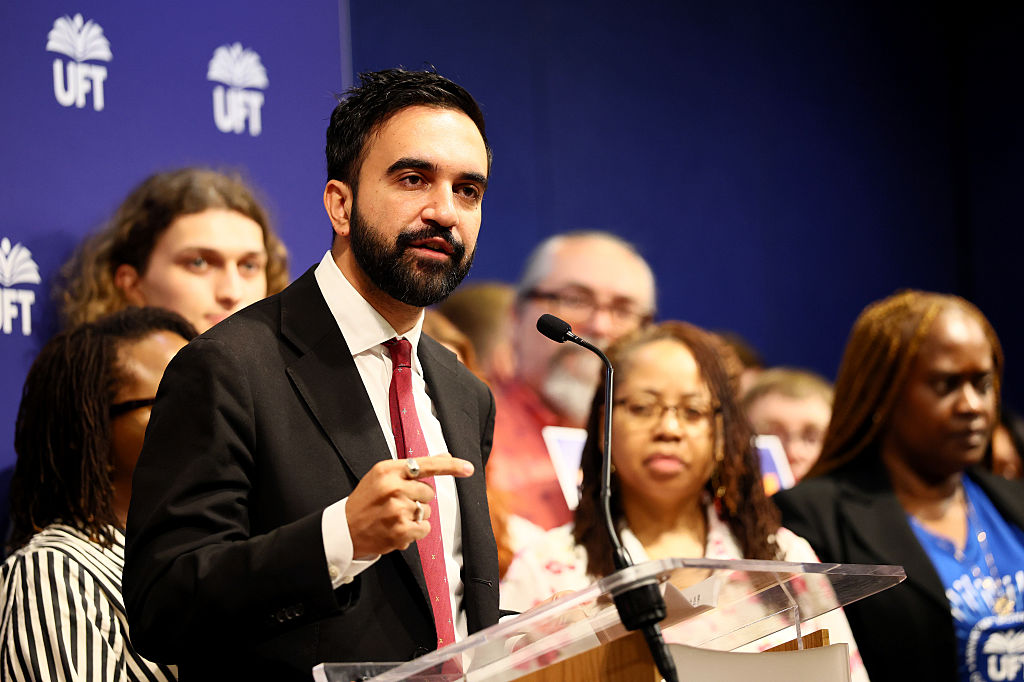Among the various slogans embossed across the t-shirts and baseball caps of Trump supporters at his rally in Tampa last Tuesday was one that hadn’t before been seen. ‘Q’ it read simply, a single purple letter on a white background, as confusing to most fellow rallyists as it was to onlookers. Now a week on, though, and the world of the QAnon movement and its mysterious leader Q has been thoroughly sifted, with countless articles published since that evening in Florida uncovering a convoluted and extensive network of conspiracy notions that has spread rapidly throughout the forum rooms of the internet since October of last year. The QAnon group has drawn the eyes of the media just as much as its theories originally captured the attention and imagination of its followers. The foundations for the movement are built upon the periodic ‘information’ dumps delivered on the minimally regulated message board site 4chan by someone purporting to hold high-level government clearance – Q. The claims, deposited mostly in enigmatic word-codes (known to followers as ‘breadcrumbs’), centre in large part around the idea of a deep-state conspiracy, overseen by Obama, the Clintons and Soros, which Trump is bravely dismantling, but also cover alongside that a range of other absurdities related to paedophilia rings, Illuminati-style cabals and, oddly, the sinking of the Titanic. In that sense, the movement is just another rehash, a kind of compendium of conspiracy theories past, that draws together a medley of some of the most successful madcap hunches of the past century. But QAnon differentiates itself in one crucial aspect. Whereas nearly all other conspiracy theories cite the government and the President as key figures in the cover up, Q and his followers are the first to posit a theory in which the President is not an agent of the conspiracy but an enemy. Some QAnoners have gone as far to say that Trump himself may be the mysterious Q. This isn’t as far-fetched as it might sound. One of the reasons why Q has been so successful in infiltrating the minds of so many Trump supporters is because his style of discourse closely resembles the President’s own. Trump likes to pepper his public performances with portentous-sounding, but ultimately hollow, soundbites. Threats delivered to other world leaders are one example, another being his ruminations last year on the calm before an unspecified ‘storm’, which, when pressed on by reporters about its exact nature, was elaborated on with the words, ‘You’ll find out’. Q similarly enjoys serving up riddles for his audience, usually creating far more questions than he does answers. ‘Mockingbird’, reads one missive, ‘HRC detained, not arrested (yet). Where is Huma? Follow Huma. This has nothing to do w/ Russia (yet). Why does Potus surround himself w/ generals?’ More fundamentally, however, the QAnon phenomenon mirrors the Trump phenomenon in their shared recognition that the key to capturing an imagination is narrative, and more specifically the time-old narrative of good and evil. Trump’s business style, his worldview and his politics are all adversarial. There is always one winner for every loser, one goodie for every baddie. Steve Bannon, who came on board with the presidential campaign in the summer of 2016 and is largely credited with delivering a Trump victory, was the first really harness his employer’s Manichean outlook. As he told Michael Wolff, who went to interview him just after winning the election, ‘Darkness is good. Dick Cheney. Darth Vader. Satan. That’s power.’ What Bannon recognised was that by drawing on darkness – represented in that campaign by immigration, international trade agreements and the military threats posed by North Korea and Iran – he intensified the brightness of the man who would vanquish them. QAnon exists and thrives within a similar environment, one in which a lone figure fights valiantly against dark and mysterious forces. Claims of paedophilia, assassination, forced submission are all mixed in the pot simultaneously to elicit our strongest emotional response, while the ‘breadcrumb’ drip-feed of cryptic information demands that its readers become active participants in deciphering and discovering the truth. Both Trump and Q are successful in the art of mass-persuasion because they can reduce the narrative to the simplest terms possible, a trick that every campaign strategist dreams of achieving, but rarely does. Tony Blair wrote that his success in the debating chamber was down to painting his opponents a certain unflattering colour, then redaubing it with casual references at every encounter. Trump takes that one step further in his constant use of fairytale-esque epithets for his opponents – Lyin’ Ted, Crooked Hillary and, eventually, Sloppy Steve Bannon – to the extent to which it becomes his own private language that supporters themselves can then tap into and engage with. That’s the real trick. It doesn’t really matter if what is being said is true or not, just so long as it’s something that can be readily understood and interacted with. It’s unclear just how many QAnon followers actually believe the claims purported. One regular QAnon thread contributor on Reddit wrote: “Reading and diving into Q had me occupied for many hours. Definitively better than watching mindless TV programs. Even if it was all a lie, the entertainment value is real :)” Think wild claims about birth certificates and Ted Cruz’s father and it is clear that the President also spins outlandish yarns to great effect with little care for the truth. But a good story that is false will invariably upstage a bad story that is true. Trump and Q are good storytellers, who inspire strong emotional attachments by presenting themselves as the heroes of their own fables. How else do you end up with your name on the front of someone’s t-shirt?
The QAnon phenomenon shows Trump as the greatest conspiracy theorist of all
‘Darkness is good. Dick Cheney. Darth Vader. Satan. That’s power.’

Members of QAnon await the arrival of US President Donald Trump for a political rally at Mohegan Sun Arena in Wilkes-Barre, Pennsylvania on August 2, 2018. – QAnon adheres to a grand-scale conspiracy theory placing President Trump against an alleged “deep state” committed to ending his rule. (Photo by MANDEL NGAN / AFP) (Photo credit should read MANDEL NGAN/AFP/Getty Images)
Among the various slogans embossed across the t-shirts and baseball caps of Trump supporters at his rally in Tampa last Tuesday was one that hadn’t before been seen. ‘Q’ it read simply, a single purple letter on a white background, as confusing to most fellow rallyists as it was to onlookers. Now a week on, though, and the world of the QAnon movement and its mysterious leader Q has been thoroughly sifted, with countless articles published since that evening in Florida uncovering a convoluted and extensive network of conspiracy notions that has spread rapidly throughout…
Comments
Share
Text
Text Size
Small
Medium
Large
Line Spacing
Small
Normal
Large
























